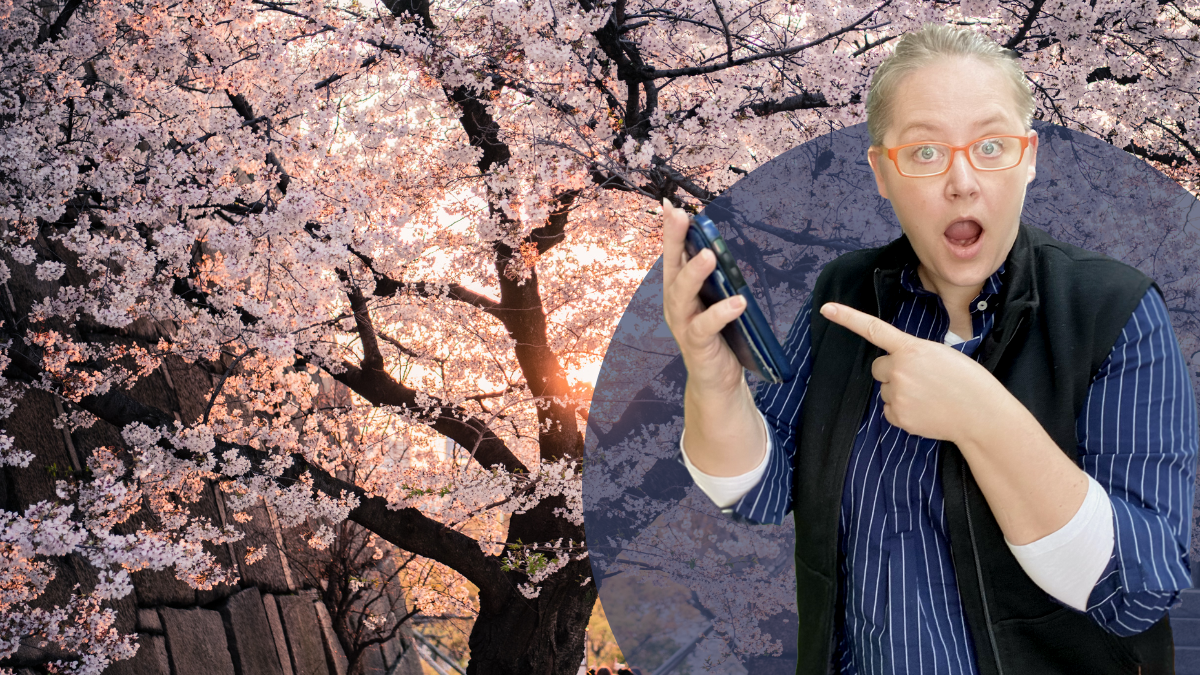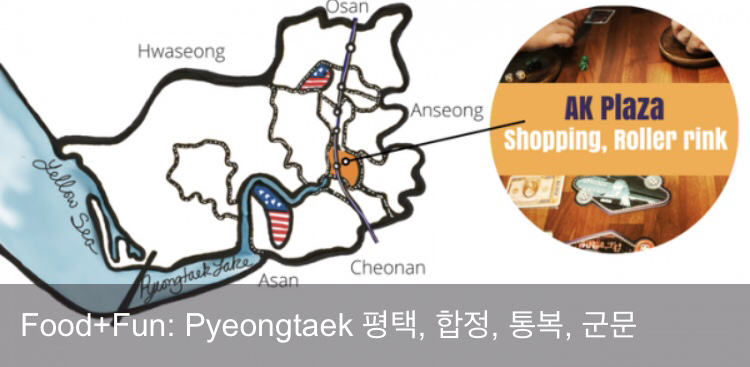
Driving: On-Street Public Parking
When you first start driving parking in Korea parking can be hard to get used to. Especially since it’s never explained clearly and works quite differently than other places you may have visited in the world. We, the volunteers at South of Seoul, have decided to start breaking down some of these differences. We have used our connections with the city to get the real story about how it all goes down. After reading our blogs we hope you can move around more comfortably and avoid those pesky parking tickets that come in the mail. Today, we are starting with paid public Street Parking.
Identifying On-Street Parking

Paid, public on-street parking is marked with white parking spaces. If you pull into a legit-looking parking spot painted with white lines, then there is a 90% chance you are going to be paying for it. Thankfully, the cost is minimal. In fact, we try to use these spots a much as possible because they are convenient and affordable.
It should also be noted that not all of it is parallel parking. Some are angled parking.
On Street Parking Costs
Here is what public parking costs in Pyeongtaek as of 2018. This will change over time so always pay attention to the new rates. These are the prices for the on-street and parking garages.
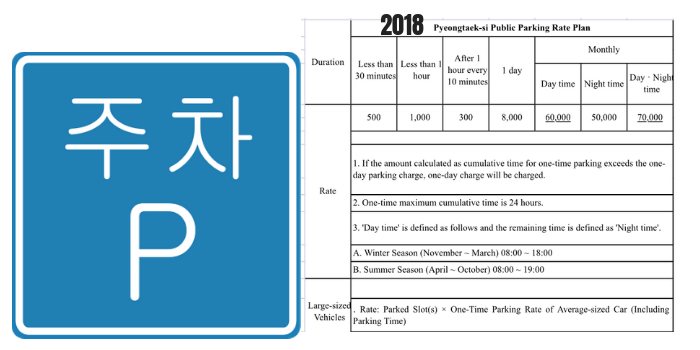
Payment Options
The official information says that you can only pay with Korean bank cards or debit cards.
However, if your foreign card processes all the transaction in KRW it may still work.
How to Pay

Recently the city updated their system so that the people managing the parking now use electronic scanners that print out pretty receipts. They used to be all handwritten and hard to read but now they are fancy. However, handwritten slips could still be used in more remote parts of Korea.
Process for Parking and Paying for On-Street Parking
This may vary slightly from neighborhood to neighborhood, but this is what often happens.
- You pull up and park. A parking attendant will come to your car, photograph your license plate, and put a ticket under your window wiper. You don’t have to wait for them to do this. Just park and go. If you need to pay it will be there when you get back.
- When you return from your errands you will wave down a parking attendant and pay them CASH for your parking. If it’s busy this can take some time so always leave time for this in your schedule. The parking lot attendants wear yellow vests to identify themselves. See image below.
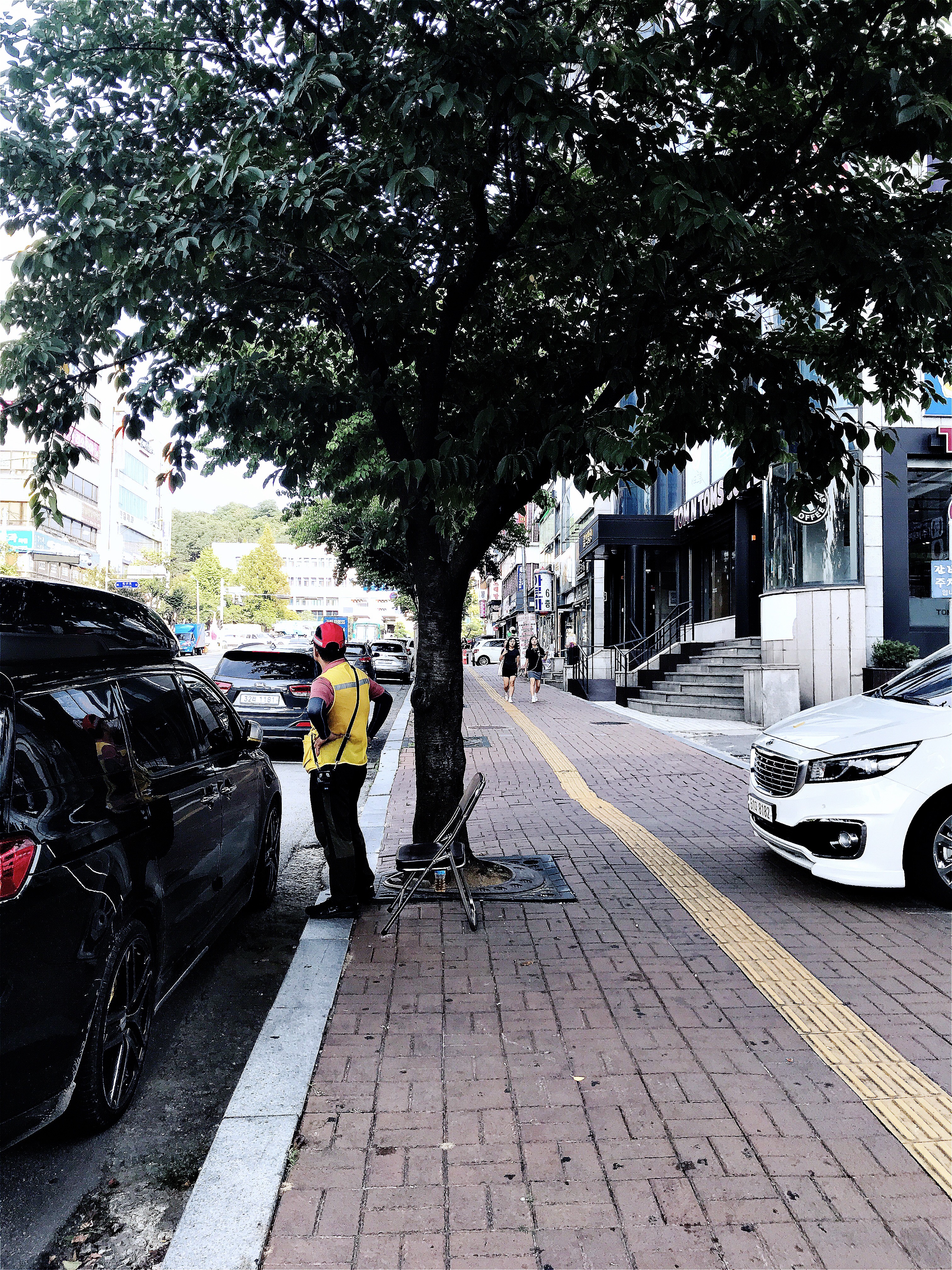
Variations You May Experience
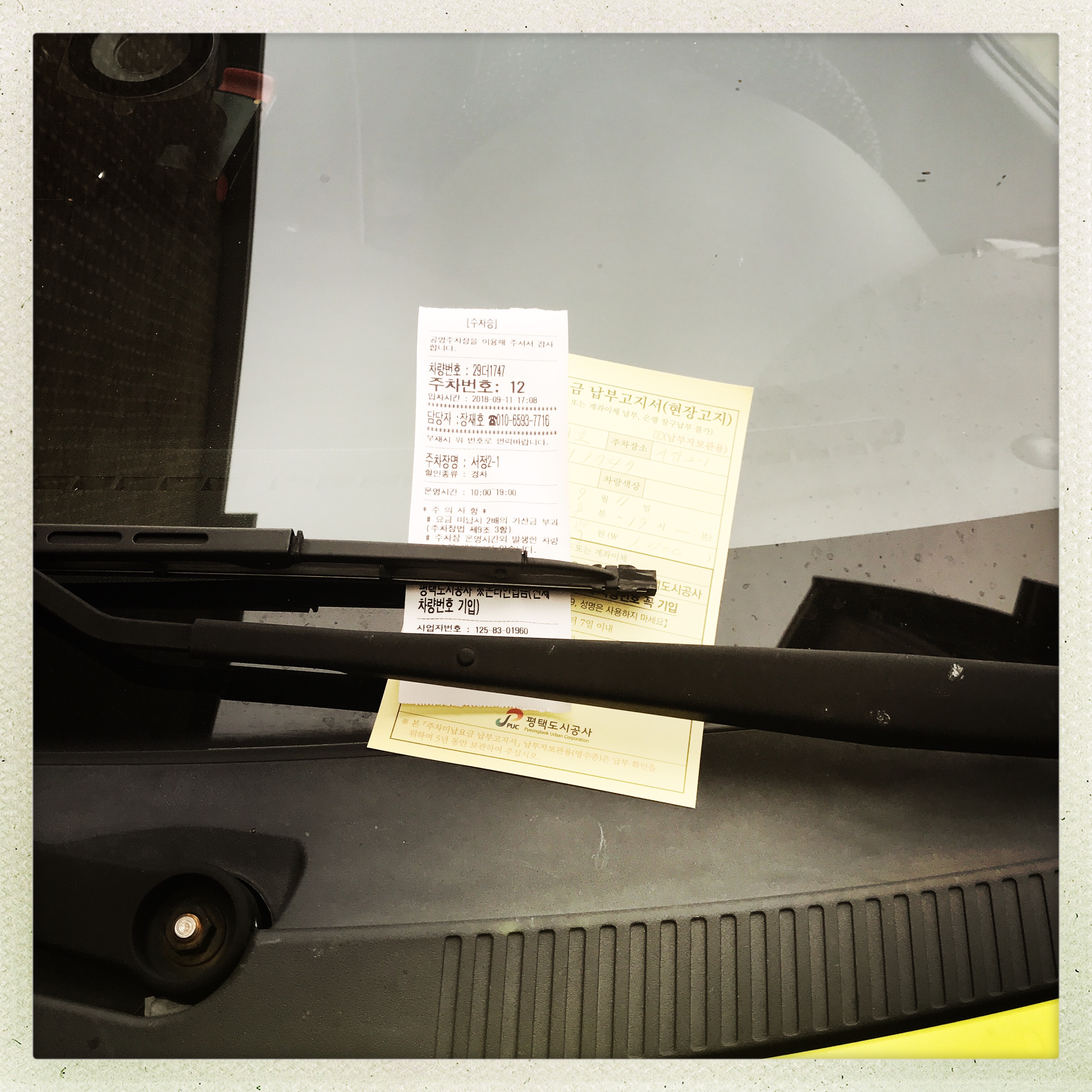
Even though on-street parking is supposed to be paid 24hrs, as we mentioned before, money is collected by real people and those real people go home about 20:00 each night and don’t come back until 7:00am. During that time there is nobody to collect money and thus it becomes free. Keep in mind there is no “free parking” rule. There is just a free parking situation. At any time this could change.
Process for Payment if You Park Near Closing
- You pay in advance: If you arrive 1 hour or less before all the attendants go home, you may be asked to pay in advance. It will be between 500won – 1,500won depending on how close you are to closing time.
- They leave you the bill. If you don’t pay in advance, before they go home they will give you a yellow receipt that charges up to the time they left. (See image above) You can pay for this at any public street parking or parking garage around the city. Don’t panic, it’s not a parking ticket. You don’t have to go anywhere special to pay it. It will just be added to your total the next time you pay for public parking managed by the city. For example, we stayed late at a parking garage in Songtan and then paid for our parking the next day at the on-street parking in Seojeongri. Super painless.
What else do I need to know?
If you are having trouble getting out of the parking spot due to traffic, the parking attendant will often give you a helping hand. They can help guide you out of tight space, or hold traffic while you pull out. It’s incredibly helpful on busy streets. Don’t get mad at them for being bossy. They are there to help. Just let them help.
Oh, also, sometimes parking is randomly free because the attendant got to work late or never showed up. It doesn’t mean it’s always free so don’t get angry when you have to pay the next time. It just means it was free at that moment. This is a very fluid system. Remembering not to freak out when there are variations on the theme is very important.
The big thing to remember is, “Don’t panic.” Sometimes language barriers can come into play but don’t freak out even if they are. It’s just culture shock and stress talking. Slow down and remember that you always have Papago or Google translate available on your handphone in a pinch. If you can’t understand
Welp, there it is. Hopefully, you feel more
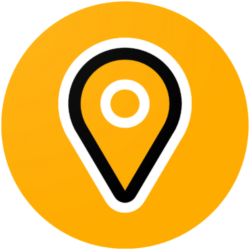
Founded in 2015, the South of Seoul team consists of volunteers on three continents working together to support English-speaking people traveling or living in South Korea. South of Seoul volunteers work with organizations and individuals across South Korea to improve equitable access to information across South Korea. Much of South of Seoul’s information focuses on Pyeongtaek, Gyeonggi-do, South Korea.
Blogs published under the authorship of “South of Seoul” include blogs compiled by multiple volunteers to improve access to standardized information unrelated to individualized personal experiences.






